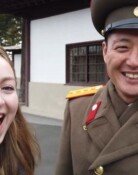Recognizing ‘biggest crisis since Korean War,’ Moon should seek collaboration against N.K.
Recognizing ‘biggest crisis since Korean War,’ Moon should seek collaboration against N.K.
Posted July. 10, 2017 07:22,
Updated July. 10, 2017 07:52
“If the missile North Korea fired this time is an ICBM, it has not only the U.S. but also Canada within its strike range” President Moon Jae-in said during his summit with Canadian Prime Minister Justin Trudeau in Germany on Saturday. “It is the biggest crisis and most dangerous situation since the Korean War.” These remarks are the expression of his deepest concern among all the remarks the South Korean leader has made thus far, and imply a significance change to his conventional view.
Even though shift of security paradigm on the Korean Peninsula is inevitable due to North Korea’s provocation with ICBM launch, President Moon Jae-in nonetheless announced as his administration’s principles denuclearization of the Korean Peninsula and signing of a peace treaty that guarantees the existence of the North Korean regime in his Berlin Declaration on Friday. The fact that President Moon admitted the current situation as the biggest crisis since the Korean War the next day indicates that he witnessed in person concern shared in the international community. While holding summits with nine countries during the G20 Summit in Germany, President Moon has shelved his groundless optimism over North Korea’s nuclear weapons. Korean Foreign Minister Kang Kyung-hwa’s remarks “China should stop crude oil supply to North Korea unless it is for a humanitarian purpose” also effectively convey the message that the Moon administration, which stressed the two tracks of sanctions in parallel with dialogue, has decided to place more emphasis on sanctions.
The international community is stepping up collaboration to impose sanctions against Pyongyang to force North Korean leader Kim Jong Un to choose between the North’s survival and dismantlement of its nuclear weapons. Analysts say if China, which is annually supplying 500,000 tons of crude oil to North Korea, completely halts supply, the North Korean economy will collapse within three months. The key to success is China and Russia’s cooperation. In response to President Moon’s call on China to take a more proactive role in solving the North’s nuclear crisis on Friday, Chinese President Xi Jinping decisively stated, “China and North Korea have maintained blood-bonded relations, and the ties have not changed fundamentally.” Saying that the missile North Korea fired cannot be confirmed to be an ICBM at the U.N. Security Council meeting on Thursday last week, Russia also vetoed a bill calling for additional sanctions against Pyongyang, including a halt of crude oil supply and a ban on money transfers to North Korea by North Korean workers overseas. Then, the U.S. should consider secondary boycott.
It is unlikely that Pyongyang will start dialogue to give up its nuclear weapons or respond to President Moon’s Berlin Declaration that entails measures for inter-Korean reconciliation and cooperation. The North recently held a massive festival celebrating the successful launch of ICBMs by mobilizing hundreds of thousands of Pyongyang residents. The North’s Rodong Sinmun commented on Sunday on the flight drill of the U.S.’ long-range strategic bomber B-1B Lancer over the Korean Peninsula in a show of force, calling it a military gamble that seeks to switch on the detonator for a nuclear war, and claimed, “The American imperialists’ scheme will inevitably bring about self-destructive consequences.” Pyongyang effectively has indicated that it will even risk a nuclear warfare, let alone starting discussions to give up nuclear weapons. If President Moon is looking straight the actual reality, he will have to consider a new North Korea policy.







